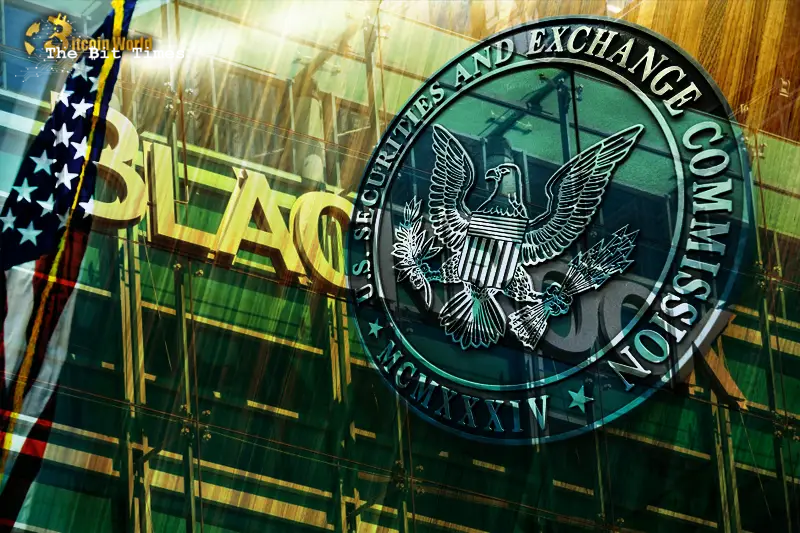SEC fines BlackRock $2.5 million for providing false investment information.

In the realm of content creation, three essential factors come into play: “perplexity,” “burstiness,” and “predictability.” Perplexity gauges the intricacy of the text, while burstiness examines the diversity of sentence structures. Predictability, on the other hand, assesses the likelihood of predicting the subsequent sentence. Humans tend to inject their writing with bursts of creativity, employing both long and complex sentences in conjunction with shorter ones. In contrast, AI-generated sentences tend to adhere to a more uniform structure. Therefore, when crafting the content that follows, I implore you to infuse it with a healthy dose of perplexity and burstiness while keeping predictability to a minimum. Additionally, the content should be exclusively in the English language. Now, let’s reimagine the given text:
On the very day that the United States Securities and Exchange Commission (SEC) unveiled charges against the world’s largest asset manager, a DTCC listing of its spot Bitcoin ETF emerged, although a DTCC spokesperson clarified that this listing had been present since August.
The SEC has imposed a $2.5 million fine on investment adviser BlackRock Advisors, accusing the firm of inaccurately representing investments in the entertainment industry, which constituted a significant portion of a publicly traded fund under its management. According to the SEC’s filing, between 2015 and 2019, the BlackRock Multi-Sector Income Trust (BIT) made substantial investments in a print and advertising enterprise known as Aviron Group, primarily involved in the production of one to two films annually through a loan facility.
The SEC’s allegations center on BlackRock’s erroneous classification of Aviron as a provider of “Diversified Financial Services” in several of BIT’s annual and semi-annual reports made available to the public. Additionally, BlackRock is accused of misrepresenting Aviron’s interest rate, stating it was higher than it actually was. However, the asset manager identified these errors in 2019 and subsequently rectified the information pertaining to Aviron’s investment in the following years.
Andrew Dean, co-chief of the enforcement division’s asset management unit at the SEC, emphasized that investment advisers have a fundamental duty to provide accurate and crucial information regarding the assets within the funds they oversee. In the case of the Aviron investment, BlackRock fell short of this responsibility.
In acknowledgment of its failure to provide accurate investment disclosure, BlackRock has consented to pay the $2.5 million penalty. It’s worth noting that this investment was unrelated to the realm of cryptocurrency. Nonetheless, the world’s largest asset manager has garnered attention in the crypto sphere due to its proposed spot Bitcoin exchange-traded fund (ETF).
The SEC’s charges against BlackRock for its shortcomings in investment disclosure coincided with the appearance of its spot Bitcoin ETF on the Depository Trust & Clearing Corporation (DTCC) listing. This development led many to speculate that the approval of the spot Bitcoin ETF is imminent.
Senior Bloomberg ETF analyst Eric Balchunas described the DTCC listing as “an integral part of the process” in bringing a cryptocurrency ETF to the market. However, shortly after its initial listing, the spot Bitcoin ETF temporarily disappeared from the platform, causing confusion within the crypto community. Subsequently, a DTCC spokesperson clarified that the iShares Bitcoin ETF had, in fact, been listed on the platform since August and that this change was not indicative of any regulatory approval.
The post SEC fines BlackRock $2.5 million for providing false investment information. appeared first on BitcoinWorld.
Comments
Post a Comment